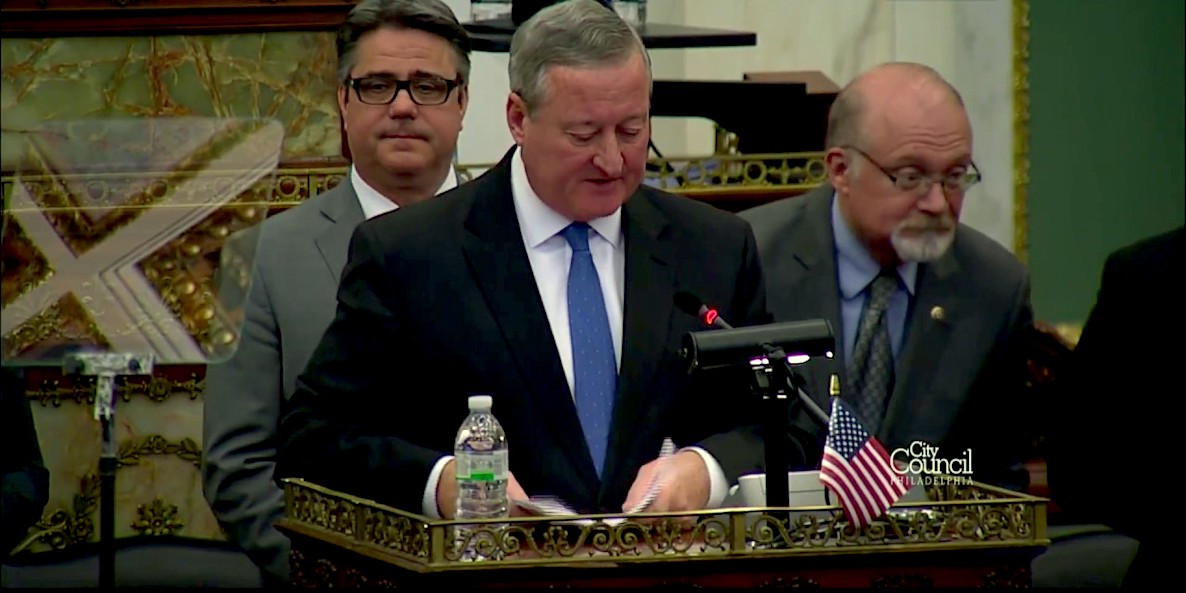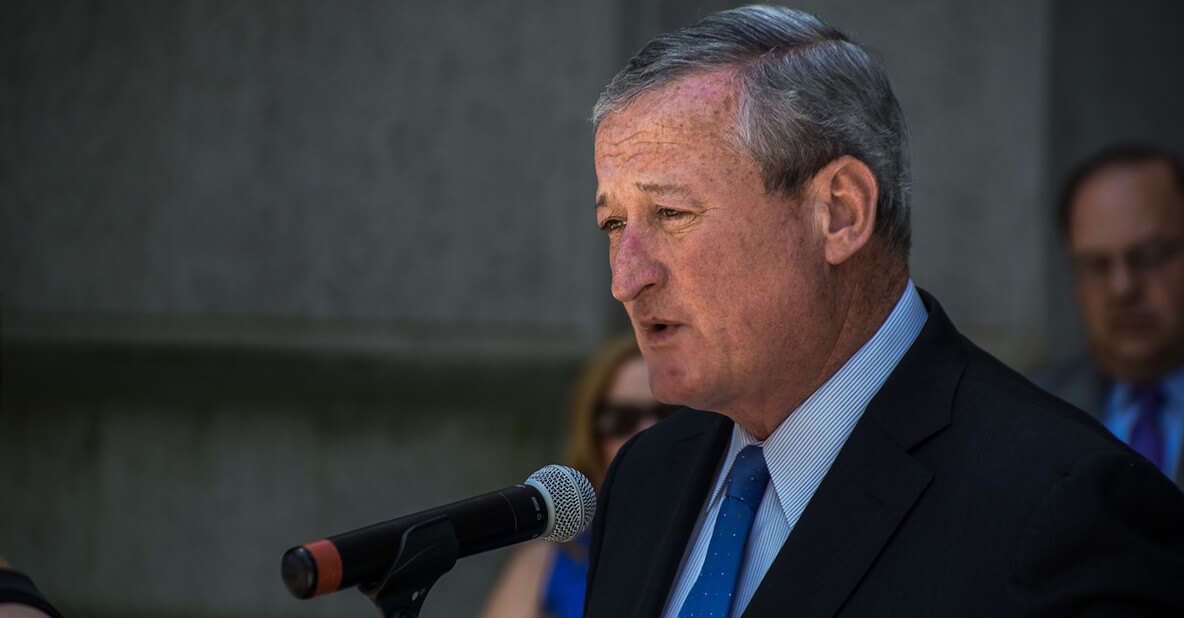Here we go again. For the second year in a row, property tax assessments are going up—effectively, yet another tax increase for hundreds of thousands of residents under Mayor Jim Kenney, who has yet to meet a tax he doesn’t swoon over.
Actually, scratch that. Kenney is most definitely a taxaholic, but he did demonstrate will power in opposing one proposed tax hike: The 1 percent construction tax. Why was that the outlier? Well, maybe because Kenney’s ally and chief benefactor, now-indicted labor leader John Dougherty, was adamantly opposed to it.
So let’s rephrase: Other than when Doc’s self-interest is on the line, Kenney is committed as ever to rummaging through your pockets. After all, he’s got to find some way to pay for his $5 billion budget proposal, a 25 percent increase over the $3.9 billion budget he inherited from Mayor Nutter, which amounts to the largest four-year spending spree in city history.
Other than when Doc’s self-interest is on the line, Kenney is committed as ever to rummaging through your pockets.
Here’s the problem, though. What return on that investment has the Philadelphia taxpayer seen? “We have no problem paying taxes. But in Philadelphia we pay the city tax, we pay the wage tax … what are we getting for these taxes?” a taxpayer named Eileen Nisenfeld told the Inquirer’s Laura McCrystal, her Rhawnhurst home’s assessment having jumped 14.9 percent this year and, now, 9.8 percent next year. “Show us where the money is going before you just come around and assess my house based on a drive by or what my neighbor’s house sold for.”
In what universe is the rational answer to our problems—the worst poverty in the nation, anemic economic growth, an exploding murder rate—to tax middle class residents more? Nationally, redistributing income may be newly popular on the political left, but, in our city, it just may be that there’s no one left to tax.
After all, we’re the highest taxed city in the nation not named Bridgeport, Connecticut. The evidence is clear that cities that flourish—like low-tax, high-growth Houston—relieve the tax burden on working folks and businesses, while investing in pro growth strategies.
By contrast, just think of the burdens we’re placing on middle class residents here: There’s our highest-in-the-nation wage tax, in which we tax what can up and move: People. There’s Kenney’s sacred soda tax, the parking tax (which dwarfs even New York’s), cigarette and drink taxes, the aforementioned (and ever-rising) property taxes, an amusement and sporting events tax, and a hotel tax. Want to open a business here? Then you better be prepared to pay the city’s usurious vig in the form of income and gross receipt taxes, net profits taxes, and use and occupancy taxes.
Yes, Center City and University City are bustling, combining for 53 percent of all of Philadelphia’s jobs. But, not coincidentally, Taxadelphia still suffers from an exodus of middle and working class residents. Since 2010, 62,000 more residents of city neighborhoods left for homes in the suburbs than moved from the suburbs into the city.
Taxadelphia still suffers from an exodus of middle and working class residents. It’s actually not that complicated: People follow jobs.
In both black and white neighborhoods outside downtown, according to Center City District President and CEO Paul Levy, more households who make over $125,000 per year are moving out of the city than moving in. Astonishingly, 81 percent of households that left Philadelphia between 2010 and 2016 had no children, giving lie to the conventional wisdom that it’s our subpar schools driving urban flight.
It’s actually not that complicated: People follow jobs. Outside of Center City, Levy reports, 40 percent of Philadelphia’s workforce reverse commutes to the suburbs every day. In contrast, only 15 percent of New York City residents do the same.
Now that, for the second straight year, reassessments are hiking property taxes on a population that is already feeling squeezed, Council will opportunistically march before it representatives from Kenney’s Office of Property Assessment, and, in their questioning, they will attempt to convey to you that they’re on your side. But Council has mostly been a co-conspirator in Kenney’s tax and spend ways, not a check on them.
Yes, we need to fix OPA. But, more important, we need to widen the aperture of our lens, because this is bigger than fixing the reassessment process. It should really be about changing a pandering political mindset from tax and spend to investing in growth. Here at The Citizen, we’ve chronicled ways to do just that, zeroing in on ways that other cities have successfully grown their economic pie.
By necessity, cities have the world over become laboratories of economic growth innovation. But there’s been a dearth of such thinking here, despite the fact that Philadelphia is proof positive of the proposition that cities can’t grow without a middle class to invest in.
![]()
RELATED
Header photo courtesy of Jared Piper for Philadelphia City Council / Flickr









